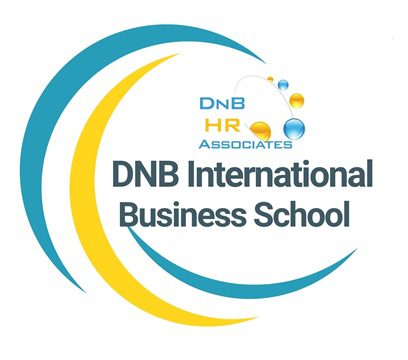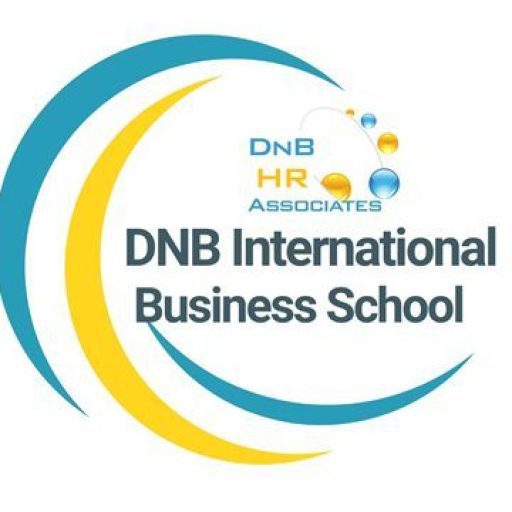5 Administration Skills To Get Promoted
Top 5 HR Administration Skills You Need to Get Promoted Published by DNB International Business School Getting promoted in HR administration isn’t just about showing up and doing your job well. In today’s competitive business landscape, professionals who advance to senior HR roles possess specific, foundational competencies that set them apart from their peers. After training over 300 HR professionals and observing countless career trajectories, we’ve identified the five critical areas that consistently lead to promotions: fundamentals of human resource administration, developing a customer service mentality, employment law understanding, employee relations and conflict resolution, and effective teamworking. Whether you’re starting your HR journey or looking to break through to the next level, mastering these core competencies will accelerate your career growth. The Top 5 Essential Skills Will Get You Get Promoted 1. Fundamentals of Human Resource Administration , benefits administration, and maintaining HR information systems. What it is: Mastery of core HR administrative functions including employee record management, payroll coordination Why it matters: Strong foundational skills are the bedrock of HR credibility. Employers promote HR administrators who demonstrate flawless execution of basic functions because they trust them with more complex responsibilities. You cannot advance to strategic roles without first proving competence in fundamental tasks. Key competencies include: – Employee file management and record keeping – Payroll processing and benefits administration – HR policy implementation and compliance monitoring – HRIS (Human Resource Information Systems) management – Documentation and reporting accuracy Real-world application: HR administrators who maintain accurate employee records, ensure timely payroll processing, and manage benefits enrollment efficiently become indispensable to their organizations. These professionals often become the first choice for promotion when HR Officer or HR Manager positions open. 2. Customer Service Mentality What it is: The ability to treat employees, managers, and external stakeholders as valued customers, providing excellent service, responsiveness, and professional support in all HR interactions. Why it matters: HR is fundamentally a service function. Professionals who approach their role with a customer service mindset create positive experiences that build trust and credibility throughout the organization. This reputation for excellent service often leads directly to promotion opportunities. Essential service competencies:Active listening and empathy in employee interactions Timely and professional response to inquiries Problem-solving with a solution-focused approach Clear communication and follow-through Anticipating needs before they become problems Career impact: HR administrators known for exceptional service become the “go-to” person for managers and employees. This visibility and positive reputation with stakeholders across the organization makes them natural candidates for advancement. 3. Understanding Employment Law What it is: Solid working knowledge of employment legislation, regulatory requirements, and the ability to ensure organizational compliance while guiding managers through complex employment situations. Why it matters: Employment law mistakes can be costly and damaging to companies. HR administrators who understand legal requirements and can provide reliable guidance become trusted advisors to management, making them invaluable for promotion consideration. Essential areas of knowledge: Workers’ Rights Act and fundamental employment legislation Disciplinary procedures and fair dismissal practices Equal opportunity and anti-discrimination principles Basic health and safety requirements Confidentiality and data protection obligations Practical application: HR administrators who can confidently advise managers on disciplinary procedures, ensure proper documentation, and prevent employment law violations become essential team members. This expertise makes them promotion-ready for HR Officer and Manager roles. 4. Employee Relations and Managing ConflictLaw What it is: The ability to manage workplace relationships, address employee concerns effectively, mediate conflicts, and maintain positive workplace dynamics while supporting both employee needs and organizational objectives. Why it matters: Workplace conflicts and employee relations issues impact productivity, morale, and retention. HR administrators who can handle these situations professionally and fairly become highly valued by management and trusted by employees, creating the credibility needed for career advancement. Core capabilities include: Active listening and empathetic communication Mediation and conflict resolution techniques Grievance handling and investigation procedures Counseling and guidance skills Maintaining confidentiality and professional boundaries Leadership visibility: HR professionals who successfully resolve employee relations issues demonstrate problem-solving abilities, emotional intelligence, and sound judgment – all qualities that promotion committees value highly. These situations often provide opportunities to showcase readiness for senior roles. 5. Working in Team What it is: The ability to collaborate successfully with colleagues across all levels and departments, contribute positively to team objectives, and support collective success while maintaining strong working relationships. Why it matters: HR doesn’t operate in isolation. Successful HR administrators work closely with managers, employees, senior leadership, and external partners. Strong teamworking skills demonstrate collaboration abilities essential for management roles and create the positive relationships that support career advancement. Key teamworking competencies: Collaborative problem-solving and decision-making Clear and supportive communication with team members Reliability and accountability in team commitments Flexibility and adaptability in changing situations Contributing expertise while respecting others’ perspectives Career advancement impact: HR administrators known as strong team players are often considered for cross-functional projects and leadership opportunities. Their ability to work well with others makes them natural choices for supervisory and management roles where team leadership is essential. Business Management / Leadership Human Resource Management Courses To Boost Up Your Career COURSE CATALOGUE How DNB International Business School Can Accelerate Your Promotion Journey Free Videos At DNB International Business School, we’ve designed our HR training programs specifically to develop these five critical competencies that employers look for when promoting HR administrators. Since 2012, we’ve helped over 300 HR professionals advance their careers, with many of our graduates moving from HR Assistant to HR Officer, and HR Officer to HR Manager within 12-18 months of completing their training.Our HR Administration Course covers all five essential skills through practical, workplace-focused training that you can immediately apply in your current role. From mastering HR fundamentals and developing a customer service mindset to understanding employment law and building strong teamworking capabilities, our program provides the comprehensive foundation you need for promotion success. developing the practical skills that make promotion inevitable. Talk to Us! Contact Us Now What sets our approach apart is the combination of theoretical knowledge with real-world application. You’ll work on actual HR scenarios, practice employee

